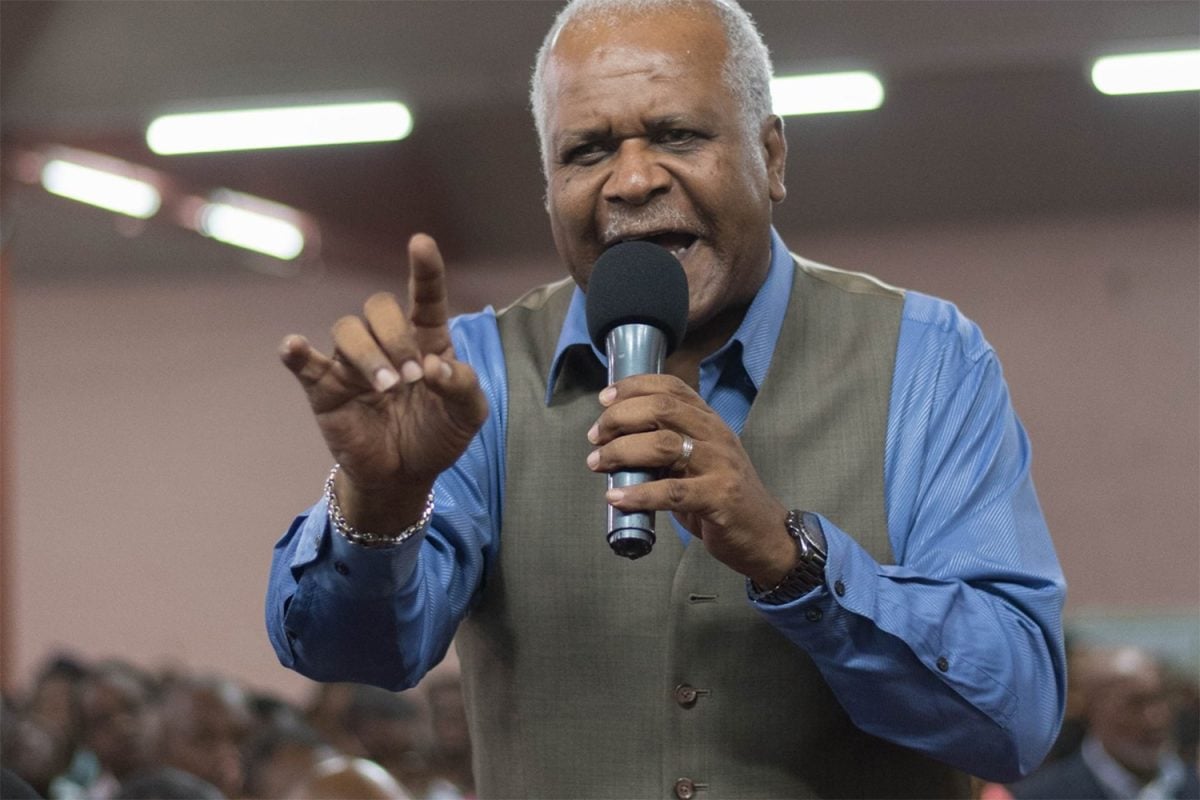Rev. Al Miller Calls On Musicians To ‘Nuh Bastardize Reggae’

Pastor of the Fellowship Tabernacle in Kingston, Reverend Al Miller has predicted that Jamaica will begin to make its rightful money from Reggae music, similar to France and Japan, but that the genre must not be allowed to be bastardized by any musician.
Reverend Miller made his comments during his sermon at the National Reggae Month church service on Sunday morning, where he centered his delivery on the music as a “tool for reigniting greatness.”
“Reggae – if we goin preserve the legacy Minista, wi haffi tell some man seh ‘nuh bastardize Reggae, yuh know bredda’. If yuh can’t use it for positive, nuh call it Reggae. Yuh haffi call it something else, because if a Reggae, it must be uplifting. If it is Reggae, it muss a seh something. It must be moving you to make you better,” he said, addressing Entertainment and Culture Minister, Olivia ‘Babsy’ Grange directly.
“If all it a do is meck yuh wine, den dat a nuh Reggae, dat a Reggae cousin, but nuh di real Reggae dat. Because it mus teck yuh somewhere. Because it was never intended just to be dance music; although yuh dance to di music. It wasn’t just supposed to be riddim to gyrate. Is not Calypso…” he added in hushed tones.
According to Reverend Miller, Reggae must be used to “turn the nation around.”
“The destiny of a nation, more than we think, it rests in the power of our music. Our music can do for us what nothing else can do. I am a preacher, but mi naw tell yuh no lie; music can do and reach and touch far more than I and any other preacher – him coulda bad like yaws, he cannot accomplish what it can,” he said.
“Yuh si music and sports are the key tools in our hands to turn this country. To break the back of problems,” he added.
Reverend Miller while acknowledging that a French national was part of the audience, then commented on what has been deemed by some the expropriation of Reggae by foreign countries such as France, which in some cases has been deemed the Reggae capital of the world.
“Yuh si all di millions – is ongle one a dem deh yah (Frenchman) and him one cyaa beat di whole a wi,” Reverend Miller quipped. “Yuh si all di millions weh di French man dem a meck outta di Reggae an we naw meck none. Come on man meck wi face it. Like a seh him cyaa beat wi; a him one.”
“Mi hear seh all when yuh guh a Japan (mi like di car dem); when yuh hear how much millions Japan a meck outta di Reggae. All di Chiney man dem een pan it too. How much di French a meck outta Reggae; an how much we a meck? ‘Gwaan hol a smalls’,” he added.
Continued the pastor: “No man. Wi haffi wake up and see what we need to do. And I am prophesying to you that from here on end, wi a guh start meck more outta it, because we pray an God a guh bless e. And we goin find di wisdom. Wi naw trouble dem enuh. Meck dem do weh dem a do, but wi ongle a seh ‘a fi wi’. Suh wi haffi get a likkle piece…”
Reggae Month, which is the brainchild of Minister Grange, will be observed in the entire month of February, with events planned for all days of the month.
It was first observed in 2008 when then-Prime Minister Bruce Golding officially declared February as Reggae Month, which he said was aimed at highlighting the impact of the genre on Jamaica’s social, cultural, and economic development.
At the time, PM Golding had also announced that he had written to then Governor-General Sir Kenneth Hall requesting that he “issue an official proclamation declaring February Reggae Month in perpetuity.”
The Prime Minister had stated that a month of activity was necessary in order to sharpen the focus and draw the attention of the world to what he described as a “powerful asset that is wholly Jamaican”.
At the inaugural launch, PM Golding had warned that while the music can be seen as an instrument of advancement, “if not used properly it could also become a lethal weapon” which, instead of uplifting Jamaicans, could be “used to disparage women and undermine the value system that the country wants to support and institutionalize”.
The PM had said at the time that Reggae Month at its inception was also aimed at giving full recognition to the music as a cultural capital, and “to assert Jamaica’s authority on the music so there can be no ambiguity of its origin”.
